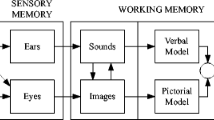Abstract
The analysis of classroom teacher behavior mainly focuses on teacher’s performance in classroom teaching with the aim of exploring the occurrence rule of teaching behavior. Supported by Artificial Intelligence (AI), it is possible to raise analytical efficiency, enrich analytical content, innovate develo** form, and realize intelligent analysis of classroom teacher behavior. Based on development and implementation of current text categorization, human posture estimation, facial expression recognition and other technologies, this paper studies and builds an integrated practice process of classroom behavior analysis under AI. This process mainly includes three modules: acquisition and analysis, feedback and improvement, and external conditions guarantee, so as to realize automatic collection, calculation, analysis and evaluation of classroom teacher behavior, which can guide teacher’s behavior improvement, promote teacher’s professional development, and enhance classroom teaching quality and student’s learning effect.
Access this chapter
Tax calculation will be finalised at checkout
Purchases are for personal use only
Similar content being viewed by others
References
L. Yan, Classroom teaching behavior: connotation and research framework. Glob. Educ. 36(S1), 39–44 (2007)
X. Zhang, J. Zhao, Y. LeCun, Character-level convolutional networks for text classification, in Proceedings of the 28th International Conference on Neural Information Processing Systems (2015)
J. Lu, D. Wang, Z. Luo, Automatic evaluation of teacher-student interaction based on dialogue text, in 2nd International Conference on Education, Sports, Arts and Management Engineering (2017)
Y. Li, H. Dong, Text sentiment analysis based on feature fusion of convolution neural network and bidirectional long short-term memory network. J. Comput. Appl. 38(11), 3075–3080 (2018)
S. Li, Y. Zhao, Q. Zhao, W. Yan, Algorithm of human posture action recognition and imitation for robots. Comput. Eng. 39(8), 181–186 (2013)
B. Yang, X. Song, Z. Feng, X. Hao, Gesture recognition in complex background based on distribution features of hand. J. Comput. Aided Des. Comput. Gr. 22(10), 1841–1848 (2010)
M. Pantic, L.J.M. Rothkrantz, Facial action recognition for facial expression analysis from static face images. IEEE Trans. Syst. Man Cybern.-Part B 34(3), 1449–1461 (2004)
Z. Pi, J. Hong, J. Yang, Effects of the instructor’s pointing gestures on learning performance in video lectures. Br. J. Edu. Technol. 48(4), 1–10 (2017)
L. Wang, Y. Li, Research on teaching phenomena based on big data of classroom teaching behavior. e-Educ. Res. 38(4), 77–85 (2017)
Q. Liu, H. He, L. Wu et al., Classroom teaching behavior analysis method based on AI and its application. China Educ. Technol. 9, 13–21 (2019)
Z. Luo, D. Zhang, Auto-evaluation of classroom teaching & learning and its preliminary research findings. Mod. Educ. Technol. 28(8), 38–44 (2018)
Acknowledgements
This work was supported by the National Social Science Foundation of Education Key Project under Grant No. AFA170008, by the Tian** Science and Technology Planning Project under Grant No. 20JCYBJC00300, by the National Natural Science Foundation of China under Grant No. 11404240, and by Tian** Philosophy and Social Science Planning Project under Grant No. TJJX17-016.
Author information
Authors and Affiliations
Editor information
Editors and Affiliations
Rights and permissions
Copyright information
© 2021 The Author(s), under exclusive license to Springer Nature Singapore Pte Ltd.
About this chapter
Cite this chapter
Wu, L., Cao, Y., Du, Q., Han, T. (2021). The Analysis Path of Classroom Teacher Behavior Supported by Artificial Intelligence. In: Wang, W., Wang, G., Ding, X., Zhang, B. (eds) Artificial Intelligence in Education and Teaching Assessment. Springer, Singapore. https://doi.org/10.1007/978-981-16-6502-8_20
Download citation
DOI: https://doi.org/10.1007/978-981-16-6502-8_20
Published:
Publisher Name: Springer, Singapore
Print ISBN: 978-981-16-6501-1
Online ISBN: 978-981-16-6502-8
eBook Packages: Computer ScienceComputer Science (R0)




